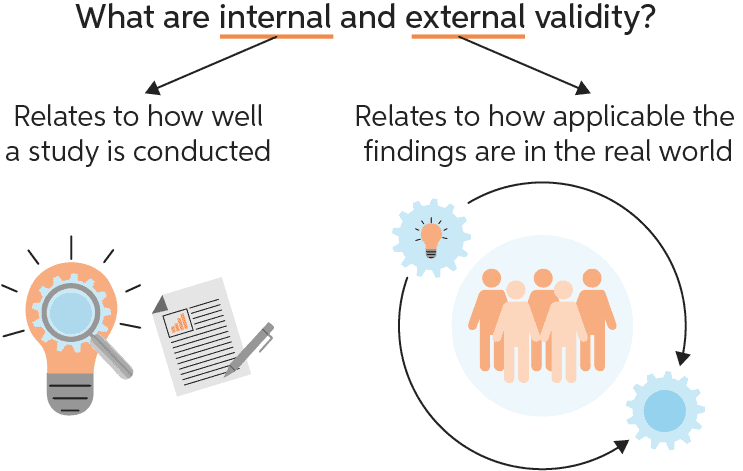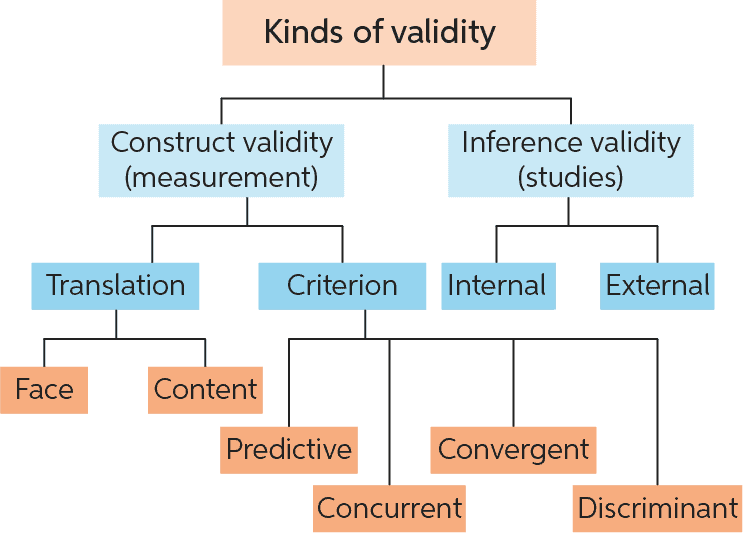- The validity of the research has two main types:
- inference validity (study-level)
- and construct validity ( variable-level)
- The inference validity that accounts for the whole research has two types:
- external validity
The external validity is all about the generalizability of the results. It tells to what extent the ‘ ‘study’s results can be generalized. It focuses on the applicability of the results and findings to the real world.
- and internal validity.
Internal validity checks the consistency of the conclusions claimed, especially those related to causality (cause and effect) with the results and design of the research. It tells how well a study is conducted. The internal validity of any research has three conditions:
- The independent and dependent variables in the study should change together.
- The independent variable should precede the dependent variable in the study.
- Any other extraneous factors should not explain the result of the study.
- Construct validity : refers to the validity of the measured variables in the research. It provides the surety about the measuring tools, whether they actually measure the things we are interested in. The construct validity is divided into two sub-types:
- translation validity : refers to a subjective evaluation that examines whether the selected measures of the study are similar or different to the subject of the overall desired aim of the study. It is further divided into two types:
- face validity: Face validity accounts for the defining of a research project as good or bad based on subjective judgments (meaning it relies on people’s perceptions).
- and content validity: Content validity checks whether the measured aspect used in research accurately represents the subject a researcher wants to measure. It is also based on subjective judgments.
- and criterion validity: Criterion validity checks the relation of the measure used in the research to other characteristics and measures. It is divided into four sub-categories: predictive validity, concurrent validity, convergent validity, and discriminant validity.
- predictive validity: Predictive validity assesses the ability of the measure variables to predict future events and abilities. In this evaluation, the results obtained by testing a group subjected to a certain construct are compared with the future results.
- concurrent validity: Concurrent validity evaluates the ability to distinguish between different groups. It provides the correlation between the test conducted in the research with other previously conducted research.
- convergent validity: Convergent validity determines whether the constructs that are supposed to be related are related.
- and descriptive validity: Discriminant validity checks that the constructs that are not supposed to be related are not related.
(Nguồn: https://www.chegg.com/writing/guides/research/types-of-validity-in-research/)
(Nguồn: https://revisesociology.com/ezoimgfmt/)
Nguồn:
- https://www.chegg.com/writing/guides/research/types-of-validity-in-research/
- https://revisesociology.com/2018/01/04/validity-sociology-psychology-definition/




Không có nhận xét nào:
Đăng nhận xét